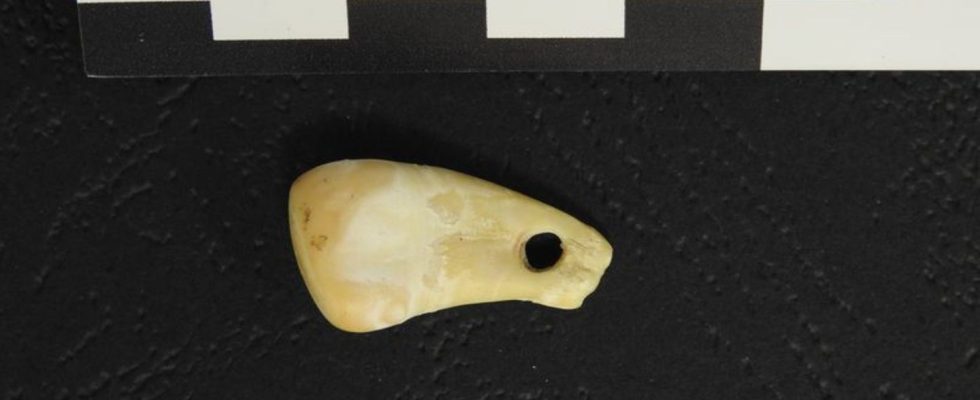Science
A woman’s genetic material obtained from an ancient pendant
The pierced deer tooth from the Denisova Cave in southern Siberia. photo
© Max Planck Institute for Evolutionary Anthropology/dpa
According to the Max Planck Institute, the study heralds “a new era in the study of ancient DNA,” in which it may become possible to directly identify the users of jewelry and tools from the distant past.
Researchers have analyzed a woman’s ancient genetic material attached to a Stone Age deer tooth pendant. This was announced by the leading Max Planck Institute for Evolutionary Anthropology in Leipzig. According to them, human DNA was isolated from the surface of the pendant, which was made between 19,000 and 25,000 years ago. The research group reports in the journal “Nature” that it is a pierced deer tooth from the Denisova Cave in southern Siberia.
According to the information, the scientists were able to reconstruct the genetic profile of both the deer from which the tooth came and that of a woman who made, wore or used the pendant. Based on the DNA analysis, they not only concluded that it was a woman, but also found that she was genetically closely related to people who lived in more eastern parts of Siberia at the same time.
Despite the DNA analysis, the trailer is still completely intact, the institute said. The team had therefore tested the effect of different chemicals on the surface structure of archaeological bone and tooth fragments and thus developed a non-destructive method for DNA extraction at up to 90 degrees. The top priority was to preserve the objects in their entirety, including the microstructures on their surface, said archaeologist Marie Soressi of Leiden University. She led the project together with the geneticist Matthias Meyer from the Max Planck Institute.

